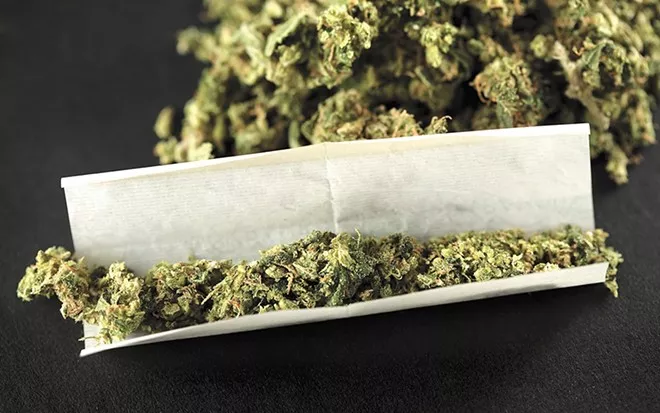PUFF, PUFF PASS
Using CANNABIS may help relieve anxiety and depression in the short term, even with so-called "micro dosing," although depression may increase in the long term, according to a study out of Washington State University.
For the first-of-its-kind study, researchers including Carrie Cuttler, clinical assistant professor of psychology at WSU, looked at self-reported data that medical marijuana users entered into an app called Strainprint.
More than 1,300 anonymous users reported their feelings before and after smoking, which strain they inhaled and how many puffs they took. Using the data, which included gender, the researchers were able to use statistical modeling to see how different strains affected users and analyze self-reported impacts over time.
Women "reported a significantly greater decrease in anxiety following cannabis consumption compared to men," according to the study, published in the Journal of Affective Disorders this month. For both men and women, anxiety and stress were reduced in more than 93 percent of the sessions tracked, and depression was reduced in more than 89 percent of sessions. However those numbers could be inflated, the study notes, because people whose symptoms get worse with use are not likely to keep consuming and reporting the effects.
The study also found that users reported one or two puffs to be just as effective as 10 puffs at reducing anxiety.
"Basically the idea here for the general population and for medical cannabis users is they shouldn't feel like they need to smoke an entire joint or get really high off a joint to reduce their symptoms," Cuttler says. "The idea is try one hit, sit and wait and see how you're feeling."
More study on the "micro dosing" aspect is needed, she notes, because the different methods of inhaling can result in different potencies per hit. Also, for stress, the analysis found that 10 or more puffs were optimal for reducing symptoms, Cuttler says.
While cannabis appears to help reduce symptoms of stress, anxiety and depression in at least the short term, the analysis also shows that while users reported pretty consistent baselines for anxiety and stress over time, the baselines for depression significantly increased over time. The authors note that studies of traditional antidepressants have raised similar questions about the long-term effectiveness of those drugs.






















